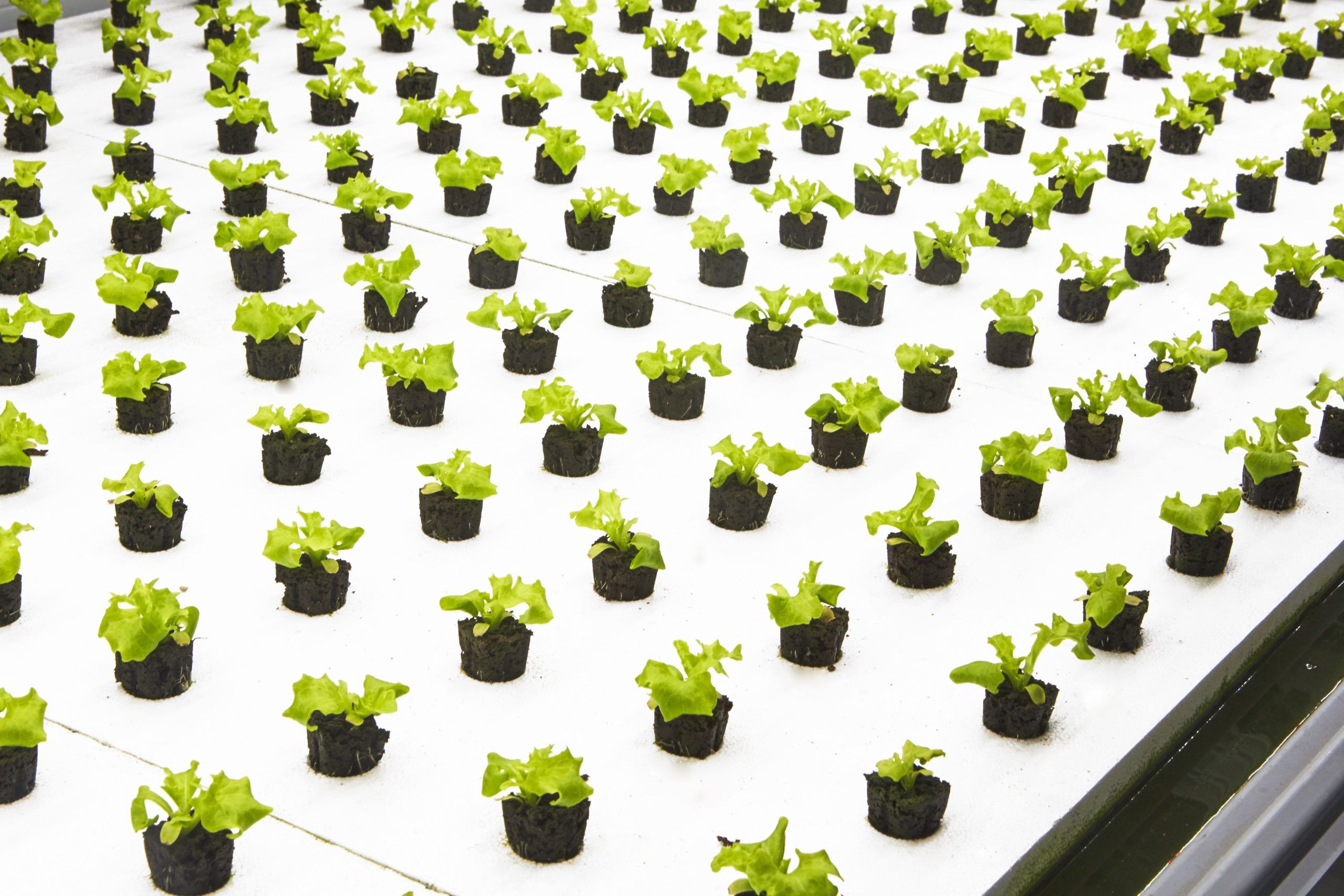New Jersey-based indoor farming company Bowery Farming has raised $20 million in Series A funding. The round was co-led by General Catalyst and GGV Capital, with additional investment from GV (Google Ventures), taking Bowery’s total fundraising to date to $27.5 million.
This is the second fundraising is as many weeks, after another vertical farming business AeroFarms raised $34 million in Series D funding.
Bowery Farming cofounder and CEO Irving Fain told AgFunderNews that the first priority for the new funds will be staffing up. “We’ve worked pretty lean for a while purposely,” said Fain, who will be filling engineering, sales and business development roles.
Bowery’s hi-tech vertical farm is located in Kearny, New Jersey. The company does not release square footage so it’s hard to say where they stand compared to others in the space like Plenty and AeroFarms.
Bowery claims to grow with 95 percent less water than field farms with no pesticides and more than 100 times the productivity of a field farm. They also claim that their product makes it to the retail shelf in the New York area the same day it is harvested.
Bowery launched six packaged leafy greens, lettuces, and herb products (known as SKUs in the industry) into retail in February. It is now selling its products — which include arugula, kale, butterhead, basil and two blends — in two Whole Foods stores, as well as Foragers Market in Manhattan, investor Tom Collichio’s restaurants Craft and Fowler and Wells, both in Manhattan.
Uncommon for this space is Bowery’s lack of commitment to a single growing set-up. Fain said they use multiple hydroponic configurations in their Kearny farm, the common link between them being a smart monitoring and controls system called “Bowery OS” developed in-house. The software uses computer vision and artificial intelligence (AI) to sense what the plants need and deliver it automatically.
Spencer Lazar of General Catalyst saw this focus on software and AI as a major differentiator after assessing other players in the space. He said his firm wanted to invest in a company that “takes software and engineering pretty seriously and is investing in it from day one so that you’re not farming with a forklift and solving problems with bodies,” favoring automated solutions and problem-solving through software.
Though General Catalyst doesn’t have any previous investments in this relatively new category, he said the firm has experience growing tech-enabled retailers with brick and mortar locations like eyewear retailer Warby Parker and logistics dominant businesses like car refurbisher and reseller Vroom .
Lazar was also impressed with Bowery’s progress so far given its streamlined team “in a space like this you want to be nimble and as tech-enabled as you possibly can be,” he said.
Hans Tung of GGV capital concurred that this lean progress was an attractor.
Bowery is in the process of expanding the capacity of its New Jersey farm and planning a second farm in the tri-state area, but Fain is stepping carefully. “A rush to scale without being thoughtful can ultimately do more harm to a company than spending more time to make sure you’re ready to effectively and efficiently scale,” said Fain.
Bowery announced the close of a $7.5 million seed round earlier this year from investors including First Round Capital, Box Group, Lerer Hippeau Ventures, SV Angel, Homebrew, Flybridge, Red Swan, RRE, and Urban.us. Matt Salzberg, founder and CEO of Blue Apron, Sally Robling, chairman of Plated, celebrity chef Tom Colicchio, and Adam Eskin, founder and CEO of Dig Inn, are angel investors.





